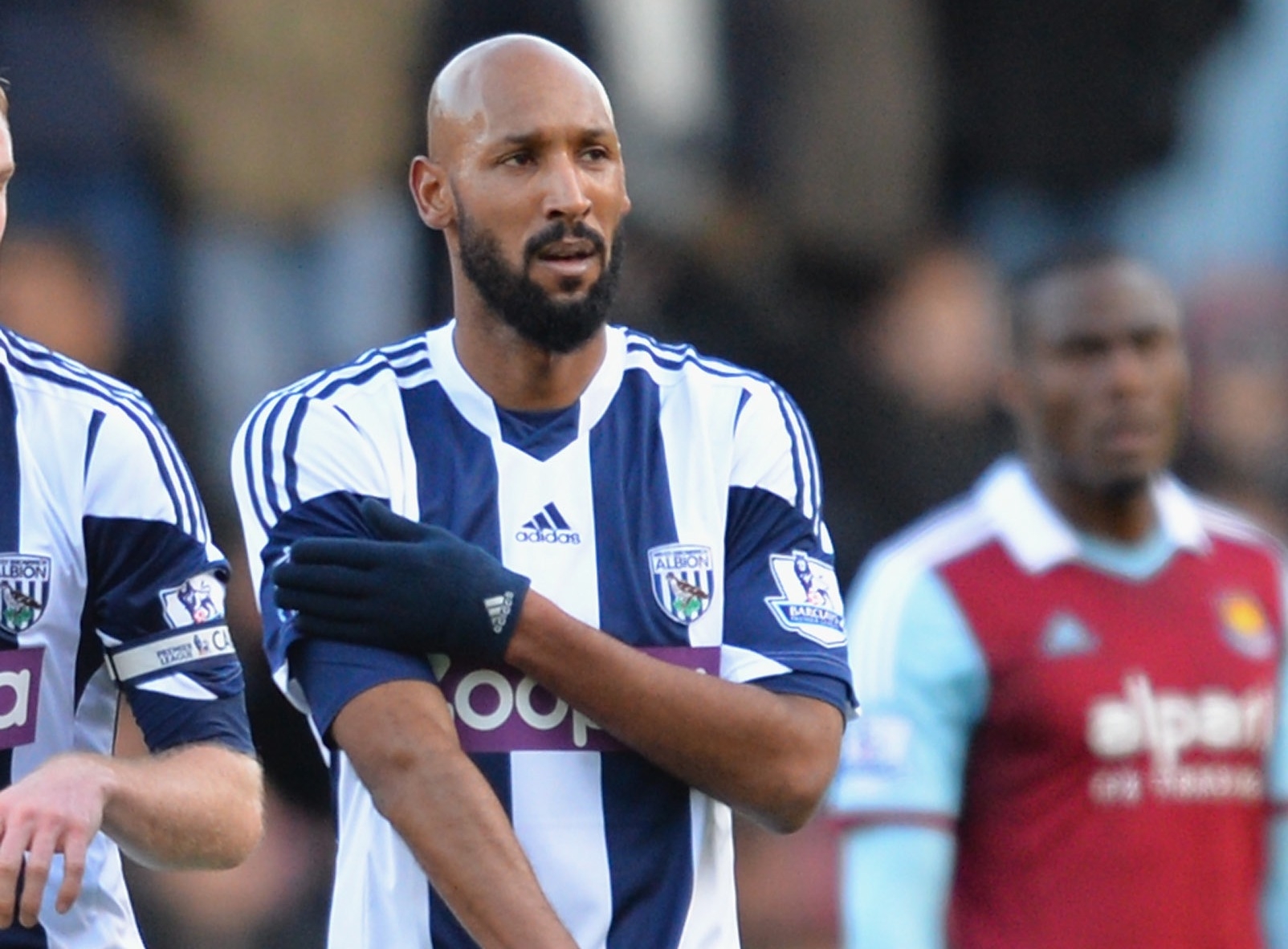(JTA) — When West Bromwich Albion striker Nicolas Anelka exposed British soccer fans to the vaguely Hitlerian salute now sweeping his native France, Jewish groups were confident a strong response was coming.
After all, Britain is considered a leader in the fight against xenophobia in sports thanks to its successful education programs and the tough stance of its soccer institutions, courts and police.
But their confidence has been shaken by the refusal of British soccer bosses to condemn Anelka for performing the quenelle in a match against West Ham on Dec. 28.
The quenelle, which many believe is designed to test the limits of laws banning explicit expressions of anti-Semitism, was invented by the French comedian Dieudonne M’bala M’bala, who has multiple convictions against him for inciting racial hatred of Jews.
Dieudonne says the quenelle is an anti-establishment gesture and denies that it is anti-Semitic. Anelka said much the same in a series of Twitter posts defending his actions, writing that he was neither a racist nor an anti-Semite and had performed the quenelle as “tribute to my comedian friend Dieudonne.”
But while French leaders were quick to condemn Anelka — France’s minister for sports, Valerie Fourneyron, called Anelka’s gesture disgusting and anti-Semitic within hours of the match — Britain’s Football Association and its main partner in combating soccer racism have resisted calls to follow suit.
The nonprofit Kick It Out, which partners with the FA in fighting racism, issued a statement on Dec. 28 saying only that it was aware of the incident and offered its support to the Football Association in any investigation.
Kick It Out spokesman Richard Bates declined to comment further, telling JTA that the matter is under investigation. A spokesman for the Football Association also declined to comment.
“Not good enough,” John Mann, the chair of the Inter-Parliamentary Coalition for Combating Anti-Semitism at the European Parliament, tweeted last month. “You should be leading on challenging this racism. Your statement is weak and puny.”
The rebuke was unusual for an eminent body like Kick It Out, which has 20 years of experience in combating racism and conducts training programs for similar groups around the world. Leaders of the Israeli version, Kick Racism out of Israeli Football, were in England last year for five days of anti-hooliganism training with Kick It Out.
Since Dieudonne introduced the quenelle last year, hundreds have posted online photographs of themselves performing the gesture, which consists of pointing toward the ground with a flattened hand while folding the other arm across the chest.
Several photos showed people performing the quenelle near Jewish sites, including synagogues, Holocaust monuments and the school in Toulouse, France, where four Jews were murdered in 2012.
On Jan. 9, the 70th anniversary of the deportation of hundreds of Jews from Bordeaux to Nazi death camps, more than a dozen people participated in a group quenelle outside the city’s main synagogue.
At least 10 other prominent French athletes have performed the quenelle in recent months. One was Alexy Bosetti, who performed the gesture for cameras and then said on Twitter he was only showing off his tattoo. Bosetti ended his tweet with an emoticon depicting a wink.
Despite complaints by Jewish groups, the quenelle appears to be immune from prosecution under French laws prohibiting the display of Nazi symbols. Such legal fuzziness is a Dieudonne trademark. He coined the word “shoananas” — a mash-up of the Hebrew word for Holocaust and the French word for pineapple — to suggest the Holocaust is a myth without breaking laws against genocide denial.
Nevertheless, French officials have taken a hard line against the quenelle in recent weeks. Interior Minister Manuel Valls said the gesture was an inverted Nazi salute and an expression of anti-Semitic hatred. He also urged cities to ban performances by Dieudonne, leading to the cancellation of the comedian’s nationwide tour that was due to begin this month.
“The quenelle may be a complicated legal matter, but it’s a very clear moral issue,” said Shimon Samuels, the Simon Wiesenthal Center’s international affairs director. He called on the Football Association to condemn it, “and especially on Kick It Out, which are not a court of law.”
The European Jewish Congress called for Anelka’s suspension as punishment and said the association’s inaction is indicative of a bigger problem in European and British soccer.
“Kick It Out’s tame response puts into question its commitment to tackling anti-Semitism in football and, sadly, reflects a common lack of reaction from the whole European football community,” Raya Kalenova, the executive vice-president of the European Jewish Congress, told JTA.
“Where is the apology from player or club? Where is the condemnation, ban or suspension from the Football Association, UEFA or FIFA? Kicking out racism and anti-Semitism requires a lot more than holding up banners.”
JTA has documented Jewish history in real-time for over a century. Keep our journalism strong by joining us in supporting independent, award-winning reporting.






